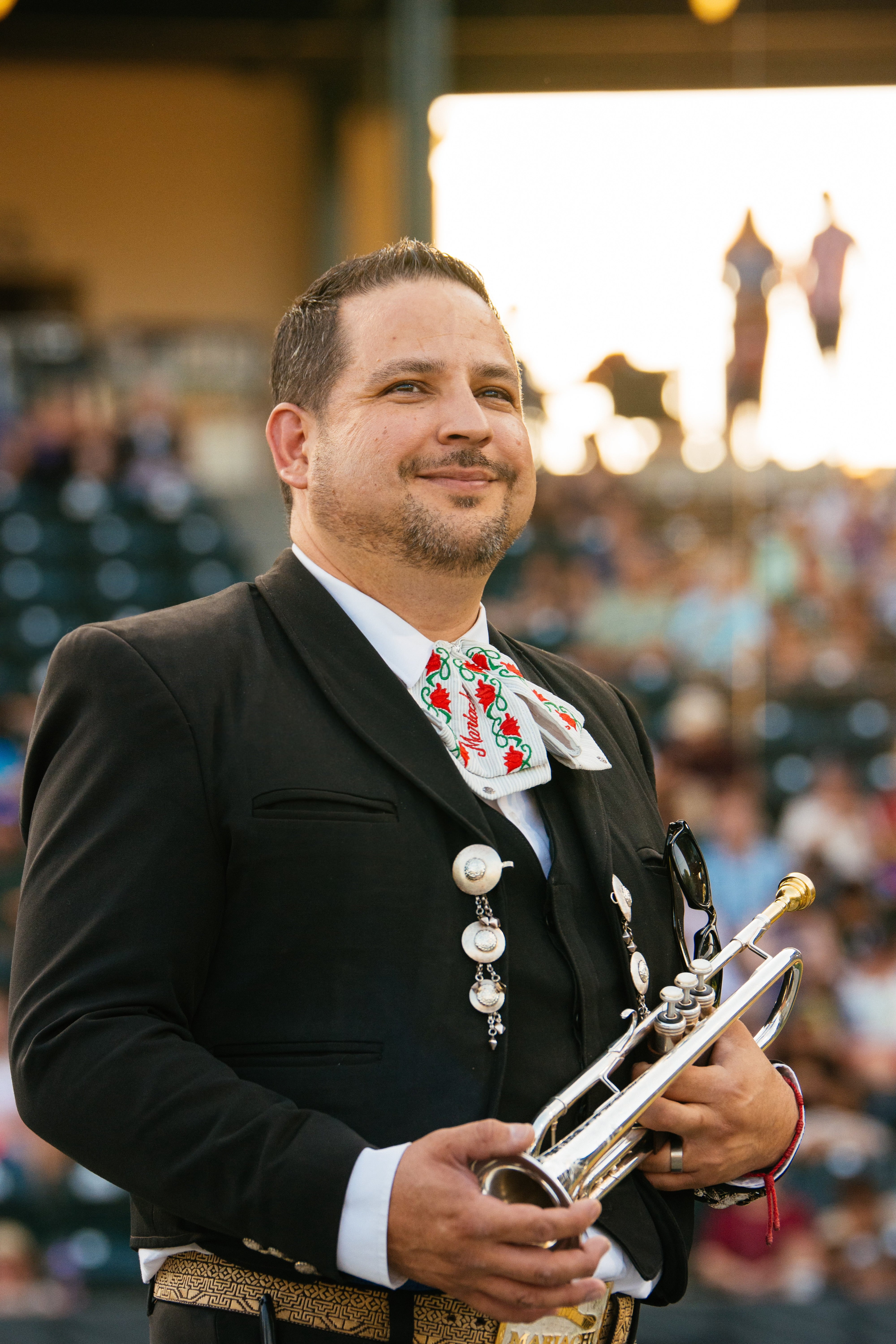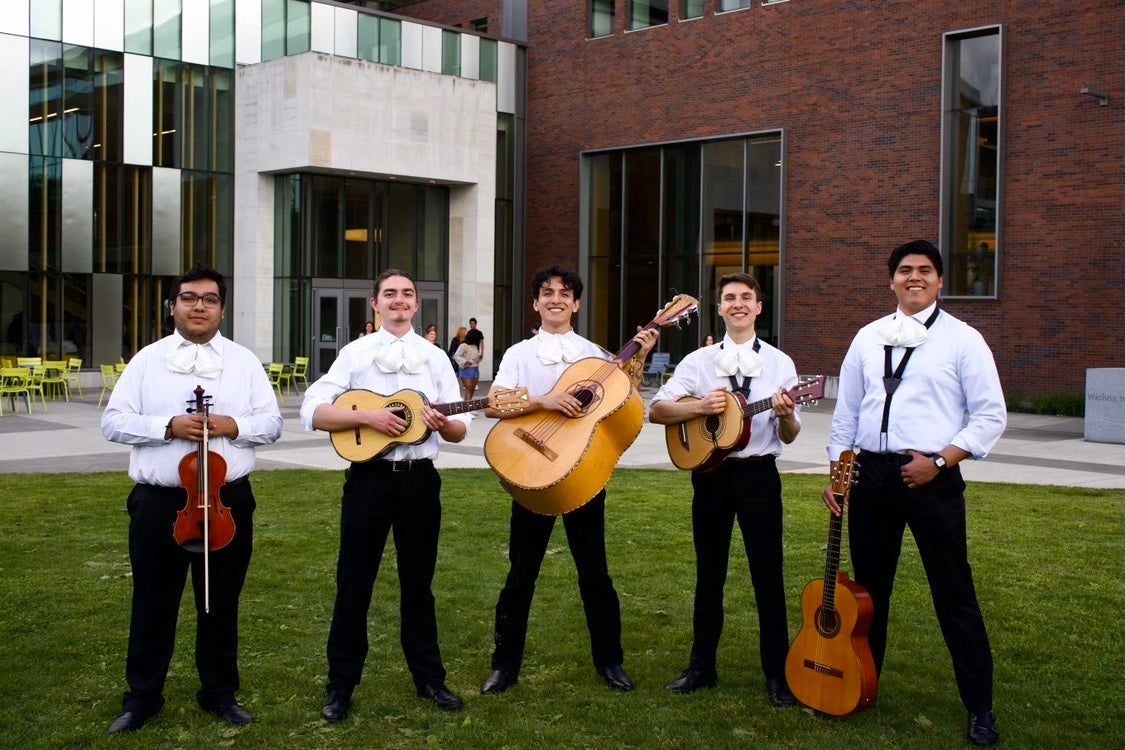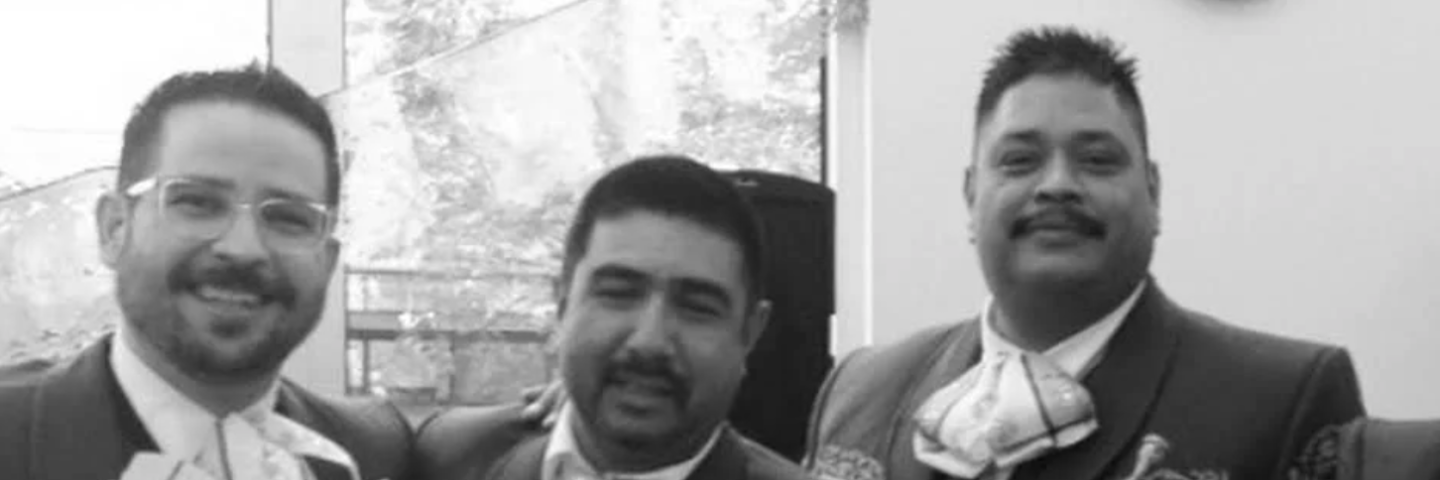 | Traditional Skill/Art: Mariachi Music Years Won: 2024 Contact Information: Phone: 801-458-1900 Email: arturo@uoregon.edu |
ARTIST BIOGRAPHY
Arturo Zavala is an acclaimed Eugene-based mariachi trumpet player. Zavala is a second-generation mariachi musician – his father, a professional mariachi himself, taught him and his brothers. From an early age, Zavala and his brothers played professionally as mariachi – Zavala continued to play in the family mariachi band into his late 20’s. Zavala has taught mariachi workshops at multiple universities and has played as a featured performer at events such as USANA Music Festival, Sundance Film Festival, and Salt Lake City 2002 Olympic Games. Currently, Zavala plays locally with Mariachi Monumental, a group he formed with his compañeros (bandmates) in 2012. He also teaches mariachi to local high school and middle school students.
Zavala serves as an academic advisor at UO and is the father of two daughters. He plans on carrying on his family legacy and celebrating his culture through playing and teaching music for the rest of his life.
APPRENTICE BIOGRAPHY
Jason Villa is a first-generation Mexican American who grew up in California. Music has been a part of Villa’s life story from an early age. He plays saxophone, trumpet, and guitarrón. He teaches saxophone at Matthew Pavilanis School of Music and teaches trumpet and guitarrón at Cascade Middle and Willamette High School. He is an active participant in the local mariachi Community as the sole trumpet player for Mariachi Cuervo based in Eugene/Springfield and is excited to further his knowledge of trumpet and mariachi so that he can pass it on to the next generation. After his apprenticeship, he will take what he’s learned and apply it directly to his career as an instructor.
 | Jason Villa Traditional Skill/Art: Mariachi Music Years Won: 2024 |
Q&A WITH THE MENTOR ARTIST
Mariachi Music Performance is an important part of the Mexican and Mexican-American experience in the US and Mexico. Mariachi groups are typically made up of 7-12 musicians, though in the US it is typically 5-6 musicians. The mariachi band includes trumpets, violins, harps, guitar, vihuelas (small guitar), and guitarrónes (bass guitar).
It is challenging to be a mariachi musician. It often takes years of immersion (most people like myself are born into it). Mariachi requires you to memorize literally thousands of songs, with traditional arrangements called cajon (out of the box). These arrangements are often not fond in recordings or mainstream transcriptions – you have to be a part of the community of mariachis to learn them. Once you learn cajon you can literally play with any group in the community that spans most of north and central America and beyond. It’s a beautiful thing to experience, feeling the connections with compañeros (bandmates) from miles away and also from generations passed. The mariachi genre is very much alive and evolving, with each generation contributing to the next.
I was born in Santa Ana, California, son of Mexican immigrants. I cannot remember when I started playing music – my brothers and I often joke that we came out of the womb singing! My father made his living as a mariachi in his native Mexico before he traveled to California and then Utah. Being an accomplished musician, my father taught my siblings and I how to play mariachi music on a variety of traditional instruments. From when I was young, my brothers and I played professionally as a family mariachi.
Mariachi music has traditionally been part of rites of passage in both religious and secular settings of Mexican and Mexican-American culture. Mariachis are hired for any moment in which a family or community comes together and says, “This is important, pay attention!”
Featured performer: USANA Music Festival, Salt Lake City 2002 Olympic Games, Sundance Film Festival
Accompanied touring artists: Las Hermans Jilguerrillas, Yolanda del Rio, Jenny Rivera, Pablo Montero.
Visit OFN's Culture Keepers Roster to learn more about the artist.
Traditional Arts Apprenticeship Program
More OFN programs
OFN main page
